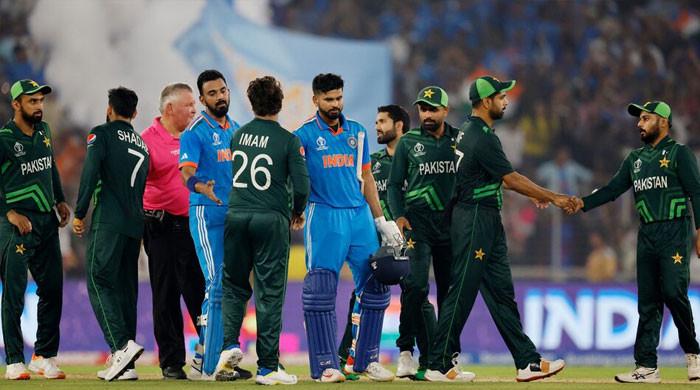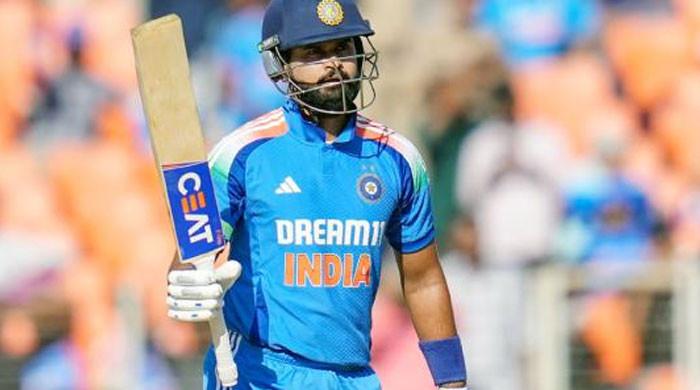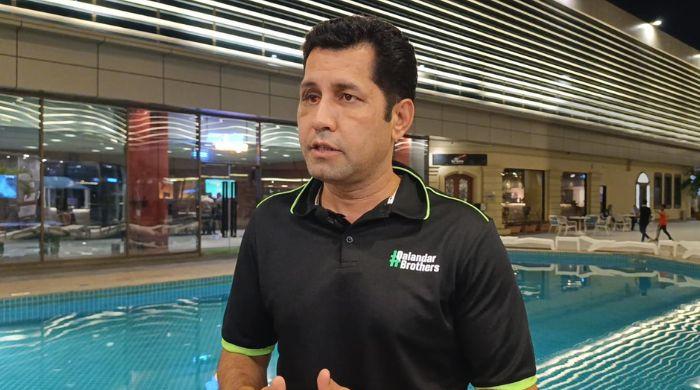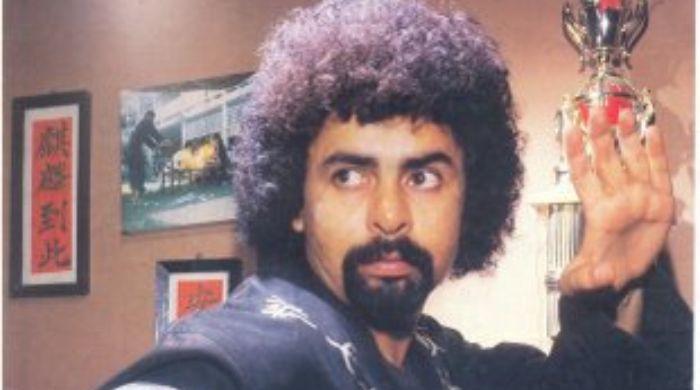Misbah and the ‘art’ of not doing the obvious
It's one thing to be outmatched but it's totally another to shoot yourself in the foot
November 26, 2019
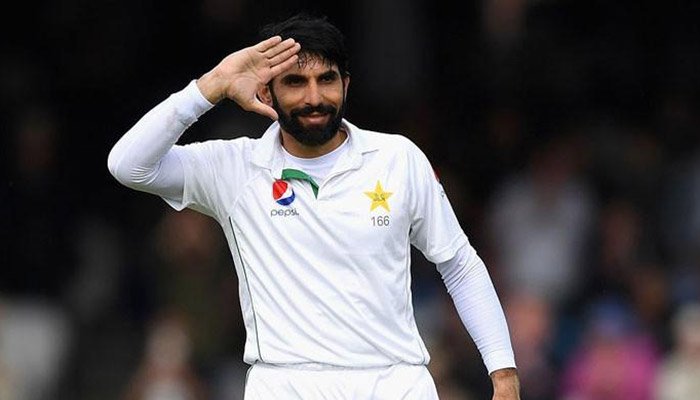
"Pakistan have suffered a Test defeat in Australia" is a headline which does not surprise fans of this cricket crazed nation one bit. And the reason is simple: it is the Men-in-Green’s 25th defeat in 36 Tests Down Under and 13th consecutive over last two decades.
After pretty much no contest in the T20I series leading up to the red-ball cricket, some still harboured hopes of Pakistan springing a surprise or two in Tests. If not win or even draw anything, the least they could do is to push the hosts to their maximum. But to the agony of us—the cricket lovers—nothing of that sort happened as the Kangaroos cruised to an innings triumph at their fortress: The Gabba.
The question is that despite having such a historically abysmal record in Australia, why was there any hope of a better show from this Pakistan side?
The answer lies in the all-powerful man named Misbah-ul-Haq —the chief selector and head coach of the national team.
With the appointment of the Misbah in that dual role, there was a sense that at least Pakistan’s Test team will show signs of improvement as this very man had guided them to the very top of the five-day ladder a few years ago.
But the show in Brisbane by the visitors would’ve hurt even those who rally behind the 45-year-old and think he’s the right man to take the Pakistan cricket team forward.
During his playing days, Misbah was famous for his calculations, strategy, and for his game awareness. With him around, there was one thing certain that he would try to do whatever a machine can do to solve a crisis.
However, the Mianwali-born’s decision-making in Brisbane left a lot to desire despite it being just his first Test as the head coach of the team.
Ramiz Raja, a former opening batsman and now a renowned commentator, in his YouTube show, questioned why Pakistan did not go in with three openers in conditions where surviving the new ball was the ultimate test. This was the key query and is exactly where Australia won the game.
Looking at the team composition, Ramiz’s comments makes a lot of sense because had we used someone like Imam-ul-Haq or Abid Ali along with Shan Masood, then captain Azhar Ali would’ve batted at number three where he has played 67 per cent of his Tests and has nearly four thousand runs under his belt at an impressive average of 43.46.
The decision to not play was even more surprising considering the fact that both Imam and Abid are technically sound and used to open the innings for Pakistan in white-ball as well as first-class cricket.
It is not the only benefit Pakistan would have enjoyed by playing two specialist openers with Azhar at one down as it could have also given left-hander Haris Sohail—who looked terribly out of form—a chance to bat at number six where he averages over 55, which is far superior to his average of just 23 while batting at one down.
Having Sohail at six would’ve given the likes of Babar Azam some lift as well because the duo have batted together a lot in the limited overs cricket for the national team and are a natural complement for one another.
But of course, Pakistan team management tried to reinvent the wheel and decided to keep both Imam and Abid busy hauling drinks back and forth. The price for their non-selection was paid by none other than Sohail, who is likely to be dropped for the second Test after getting out in a similar manner in both innings.
That was not the only ‘masterstroke’ the team management pulled off in the first Test as they somehow opted for pacer Imran Khan Sr—who had not played a single Test since January 2017 before he got one in Brisbane last week. Mohammad Abbas, who is still the Men-in-Green’s highest-ranked (12th) bowler in Test cricket, was snubbed.
The move must have even gobsmacked the home side considering how Abbas dismantled Australia’s batting lineup in the UAE in dead conditions not so long ago. The team management still decided to drop him for a pacer who at best looks a decent hardworking cricketer but not an iota more.
Any coach worth his salt would attest that going against a tougher opposition, the most basic objective is to make it harder for the opposition to win. The Misbah-led management, however, did the absolute opposite by making calls which played in the hands of the home side. No surprise then that the game was done and dusted in a little under four days.
In Adelaide, the hope of doing something that has not happened since 1995 is a bit naive, but before that, the real question is that can Misbah and his merry men stop trying to reinvent the wheel. Will they stick to the basic and the most obvious? Probably not.




